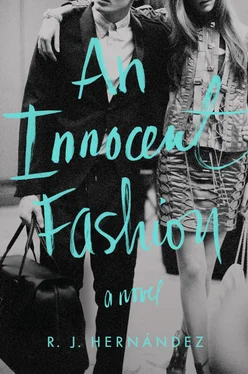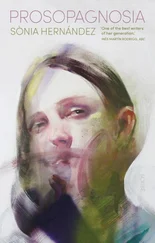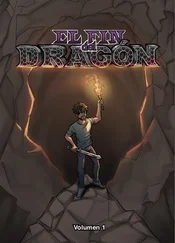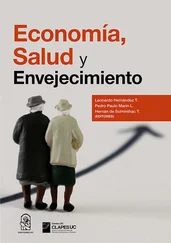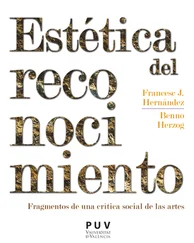I followed her with mummified stiffness through the white closet door. She swept through the fashion editors’ cubicle, dipping her fingers into a ceramic dish— clink —and, without a note of acknowledgment to her colleagues there, continued to glide down the hallway, the glint of a key between her fingers. I glanced behind us, but neither Christine nor Will had noticed the subtle pilferage. We passed a dozen wordless cubicles, through a deafening air of dutiful semiconsciousness.
The key fit into the lock on an unmarked door in the farthest corner of the office, and Clara ushered me inside. The door shut behind us. Darkness. Then she flicked on a dim overhead light, and we were standing in a walk-in closet: two garment racks, and a built-in shelf overflowing with bags and shoes, surrounded by towers of plastic crates that contained a hodgepodge of hats, gloves, and sunglasses cases.
“This is where we keep leftovers,” Clara explained, “both men’s and women’s clothes and accessories that, for one reason or another, were never returned to PR. It happens more than you would think, with so many deliveries going in and out for shoots, and sometimes they overlook things. After several seasons we donate them for a tax write-off, or they get put on consignment toward a corporate account.”
Shrouded in shadow, she turned and assessed me at an arm’s length. “You’re a thirty-inch waist, from the looks of it? Excuse my imprecise methods,” she said, and placed her hands around my waist. I lifted my arms as she slid her hands up. “You can relax,” she instructed, giving me a light squeeze around my chest. “A thirty-eight-inch chest, I’d guess, with a fifteen-inch neck? And your shoes. ” She required half a glance in the dark to determine—“ten and a half, right?”
I opened my mouth to confirm the accuracy of her estimations, but my input was outweighed by Clara’s expertise. Clacking one hanger against the other in quick succession, she shuffled through the selection of men’s dress shirts and emerged with a black Armani button-down.
“This will be a good start,” she said. “You can never go wrong with black — or Armani.” She hung the shirt on the front of the rack. “You’ll need a suit, since you like them so much.” Another clack-clack-clack , and she was holding up a three-piece charcoal-gray suit. “How do you like this?”
I ran my hand over its sculpted shoulder. “It’s gorgeous,” I said. The luxurious wool felt cool and new, and the stitched pockets had never been cut open. A lustrous black tag on the interior of the jacket’s neck read Dior Homme .
“Consider this your uniform,” she replied. “You can wear it with and without the vest — it’s versatile.”
My fingers curled longingly around the delicate sleeve. “You mean — I get to wear this?”
“Yes,” she said. She placed the suit beside the black shirt. “You might have to hem the pants for a more perfect fit, but otherwise — it’s as good as yours.”
A moment of stunned silence passed over me as I was struck by the magnitude of her benevolence. “Clara, I–I don’t know how to thank you.”
She leaned over into the shelves and selected a pair of chocolate brown Louis Vuitton oxfords. “Try these. Men’s sample size for shoes is an eleven, but Vuittons run small. If they’re not right, you can take a pair of Ferragamos, and either way you can thank me with your utmost discretion.” She straightened up. “Now, listen to me: You’ll change in here, please, and if anybody notices that you are wearing something new, you give them a strange look. That Ethan — the Ethan they remember — that Ethan never existed .”
A small twinge rang through my chest at the thought of the self-effacement that her proposition required.
“Once you’ve changed, you’ll put the suit that you are wearing in this garment bag”—she pointed—“and before you reenter the fashion closet, you’ll hang the bag on the coat rack by my desk. Then when you leave for the night, you’ll pick it up and never speak of this again.”
“Really, I—” I glanced at my new Dior suit hanging there, and choked on a rush of gratitude. “I don’t know what to say.”
“Don’t say anything — never mention it,” she said. “You can thank me when you make it in life. Send me flowers. I’m a Southern girl, so I love a nice bouquet.” She smiled, and in the obscure light, I noticed a strange mark above her right eye. It was the closest I’d ever come to her, and now I could clearly see a scar from her hairline to the top of her cheek, slicing right through her eyebrow. The fine highlight of the raised skin was the only evidence of it; blended in by the same brown foundation on the rest of her smooth, poreless face, the gap in her otherwise exquisitely groomed eyebrow filled in with a perfectly matched pencil, yet — there it was when she tilted her head in the shadows, a fine glimmer, like something had slashed her deeply. Whatever it was that had hurt her, it was a wonder it hadn’t taken out her eye, and I shuddered, realizing that even perfect Clara was just a person, covered in skin that could be broken by scars she could never fully hide.
Her voice punctuated the silence, in a register I hadn’t heard before: obscure, unrehearsed. “You know. ” she trailed slowly, “like I’ve said, you’re not the only outsider here.” She placed her hand on my shoulder. “Some of us have come very far, and take it from me — if your dream is to make it in this world. it is possible to do it.” Like the boughs of an overripe tree, her words were heavy with meaning.
Clara glanced sidelong at the rack, then at the floor. Her mouth opened cautiously, and she seemed to be on the cusp of an important caveat. “The thing you must know is. ” she unburdened herself at last, with a look bordering on desolation. “Sacrifice is at the heart of every dream.” She continued to gaze at the carpet, at the shoes and the crates and the shelves, all shrouded in shadow. “Nothing we want in life comes without sacrifice, and you realize this as you grow up. I did. We all did.” She looked up at me now. In the darkness, I had the impression that her densely mascaraed eyelids were two flickering black wings.
“It is a lovely style you have,” she lamented. A mournful pang continued to weigh down her buoyant lilt. “I regret that you should have to change it, but — I always tell myself, for every thing I loved which I have given up in life, there was something that I gained.” She reached out and touched the knot of my tie. “Sometimes I know that it’s a lie, but — it’s what I tell myself. And this is what you must tell yourself too.”
I felt her delicate fingers tighten around the knot, shift it slightly one way, then back, and remain poised there. “Tell yourself every day. Otherwise, one day you’ll turn, and you won’t recognize your dream, or yourself, or—” She had choked on her own saliva.
“I’m sorry,” she smiled nervously, and swallowed. Even in the dimness, her mouth was perfect lipstick-red; for the first time I saw the resemblance between lipstick and the greasepaint of a clown’s smile, both of them a well-plotted deceit. “I’ve said enough.” Clara patted an imaginary spot of lint off my turquoise suit and took her hand back. She straightened up, and the familiar, white smile followed, with a sweet incline of her blonde head. “Now wait here, and come out when you are ready — and please, remember what I’ve told you.”
She slipped out, and it was as though nothing at all had happened between us.
I FOLLOWED CLARA’S INSTRUCTION’S PRECISELY — wordlessly hung the garment bag by her desk, then passed through the fashion closet door in my new designer outfit. I sat down without a rustle, and reached toward the keyboard. The gray sleeves flashed with strange unfamiliarity over my wrists, and for a second I mistook my hands for another’s.
Читать дальше
